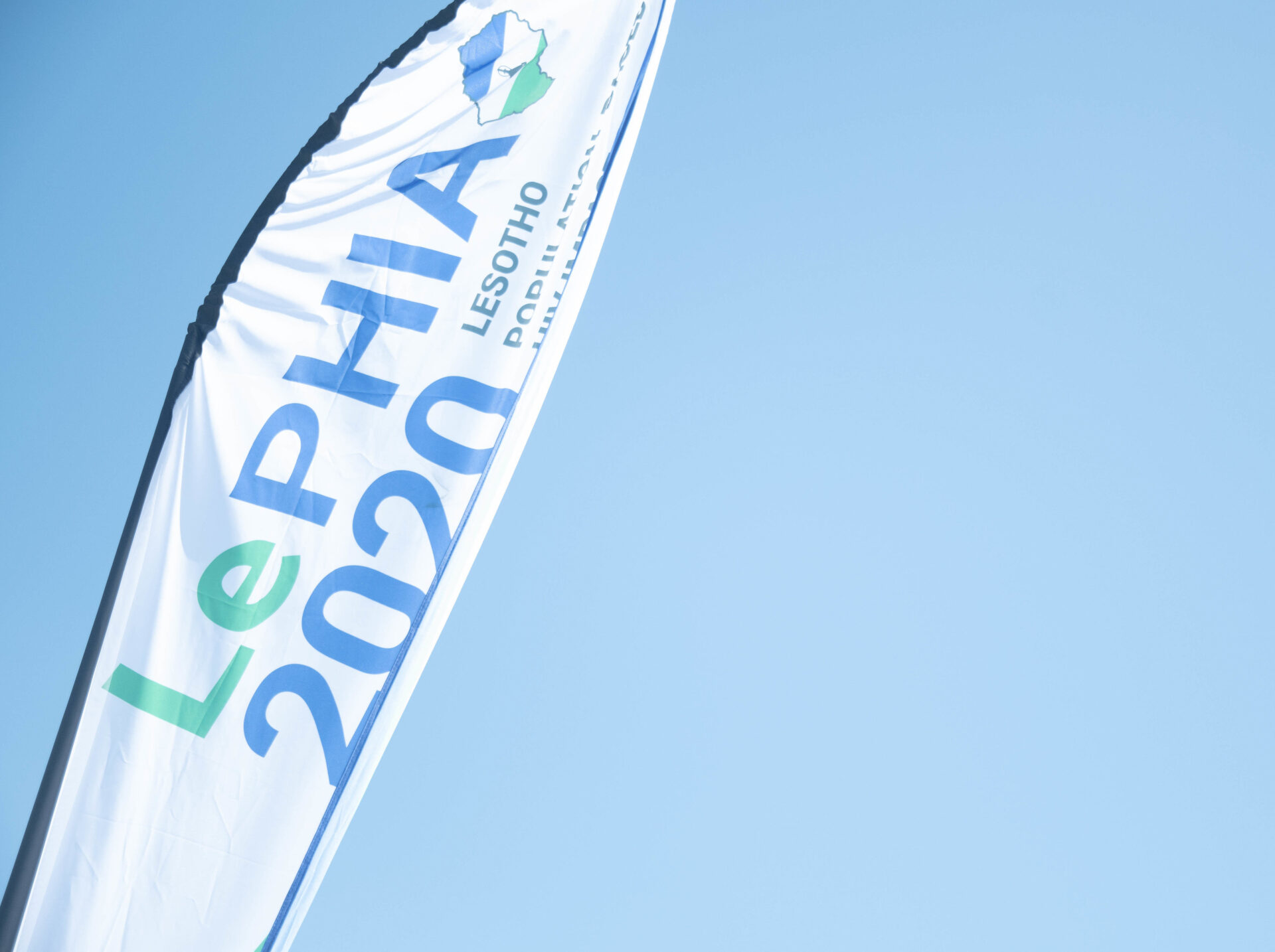With the support of ICAP, the Kingdom of Lesotho was recently able to share promising news about the results of its ongoing campaign to control its HIV epidemic. On August 18, 2021, the Government of Lesotho announced findings from the Lesotho Population-based HIV Impact Assessment 2020 (LePHIA 2020 survey) – a household-based survey conducted between December 2019-March 2020 to measure progress on the country’s HIV response.
Survey findings show that Lesotho has not only met but surpassed the Joint United Nations Programme on HIV and AIDS (UNAIDS) 90-90-90 targets, with 90 percent of adults (15 years and older) living with HIV in Lesotho reporting awareness of their status, 97 percent of those adults aware of their status reporting current use of antiretroviral treatment, and 92 percent of adults on antiretroviral treatment having viral load suppression. These results demonstrate the critical role LePHIA 2020 plays in providing data that informs and strengthens the country’s national HIV policies and programs to achieve global targets.
Led by the Government of Lesotho through the Ministry of Health and the Lesotho Bureau of Statistics, LePHIA 2020 was conducted with support from the U.S. President’s Emergency Plan for AIDS Relief (PEPFAR) and implemented by ICAP at Columbia University with technical assistance from the U.S. Centers for Disease Control and Prevention (CDC). ICAP implemented the first LePHIA survey in 2016-17.
Conducted in over 9,600 households across Lesotho, the survey offered HIV counseling and testing with immediate return of results, HIV viral load testing, and collected information on the uptake of HIV care and treatment services. In March 2020, the COVID-19 pandemic emerged, and survey team members expeditiously completed data collection mere days before the Government of Lesotho issued a national lockdown.
In a nation of 2.1 million, LePHIA 2020 found 22.7 percent, or approximately 324,000, adults were living with HIV. Among adults, the annual HIV incidence was 0.45 percent, representing about 5,000 new infections per year. Since LePHIA 2016-17, Lesotho has also reduced HIV incidence by 55 percent among adults and increased viral load suppression among adults living with HIV who were successfully treated by 18 percent.
“What does LePHIA 2020 show us?” said Wafaa El-Sadr, ICAP’s global director and principal investigator of the Population-based HIV Impact Assessment (PHIA) project. “It affirms the great progress made by Lesotho, showing a decrease in new HIV infections by more than half and a notable increase in viral load suppression among people living with HIV – an important metric of successful treatment. It demonstrates that Lesotho’s HIV programs and policies are clearly working.”
The survey also found areas for improvement in Lesotho’s HIV response, as affirmed by the Honorable Semano Sekatle, Minister of Health of Lesotho who urged programmers and policy makers to use LePHIA 2020 data to address gaps in an evidence-based approach.
“It is critically important for us to also reflect on the gaps that have been revealed by the assessment,” Sekatle said. “The HIV prevalence is disproportionately much higher among women than men. Even more so evident among our young population where the HIV prevalence is five times higher among young women aged 20-24 years compared to their male counterparts. This calls for more to be done to address these gaps, making sure that we do not leave anyone behind.”
After having reached 90-97-92, Lesotho continues to focus its efforts on achieving HIV epidemic control and is well-positioned to achieve the more ambitious UNAIDS targets of 95-95-95 by 2025.
“Today’s summary sheet release illustrates that we’ve made remarkable gains over the country’s two LePHIA surveys,” said Rebecca E. Gonzales, U.S. Ambassador to Lesotho at the nationally televised event announcing the results. “It is my hope that we remain energized as we work towards the next milestone – maintain a stable and responsive national HIV/AIDS program in Lesotho and reaching the UNAIDS 95-95-95 targets by 2025!”
To access the newly released summary sheet, visit the PHIA Project website here.
About PHIA
Since 2014, the Population-based HIV Impact Assessment (PHIA) Project has conducted nationally representative surveys to capture the state of the HIV epidemic in fifteen of the most-affected countries. This effort is led by the Ministry of Health in each participating country and funded by the U.S. President’s Emergency Plan for AIDS Relief (PEPFAR) through the U.S. Centers for Disease Control and Prevention (CDC) with technical support from ICAP at Columbia University. The PHIA Project embraces strong and effective partnerships to change the course of the HIV epidemic. For more information on the Population-based HIV Impact Assessment Project, visit: https://phia.icap.columbia.edu/
About ICAP
A major global health organization that has been improving public health in countries around the world for nearly two decades, ICAP works to transform the health of populations through innovation, science, and global collaboration. Based at Columbia Mailman School of Public Health, ICAP has projects in more than 30 countries, working side-by-side with ministries of health and local governmental, non-governmental, academic, and community partners to confront some of the world’s greatest health challenges. Through evidence-informed programs, meaningful research, tailored technical assistance, effective training and education programs, and rigorous surveillance to measure and evaluate the impact of public health interventions, ICAP aims to realize a global vision of healthy people, empowered communities, and thriving societies.








